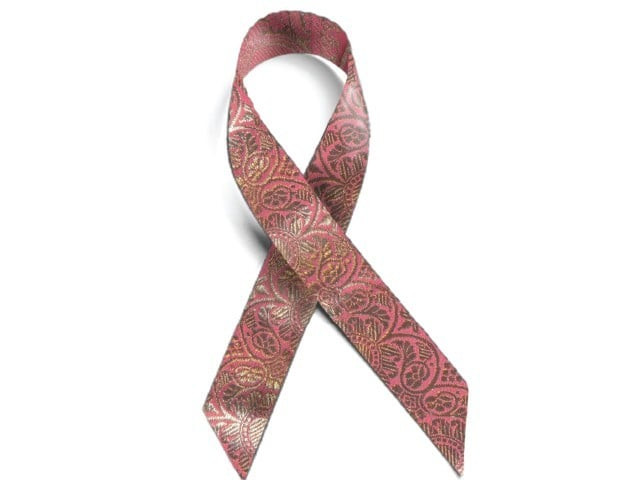Breast cancer awareness: Head to the mall to dispel myths
The campaign at Dolmen City, Clifton, also offers registration for free mammograms.

"We have received a great response so far. In fact, I have even seen men pushing their wives to visit our booth," Triumph product manager, Mahwash Bhimjee. PHOTO: FILE
With a shopping bag in one hand, Samira Nadeem curiously observed a booth as a woman sporting a light pink dress walked up to her. “Did you know you can check for symptoms of breast cancer at home?” asked the confident woman as Samira smiled back at her.
Representatives of Triumph Pakistan, the international lingerie chain, in collaboration with Pink Ribbon Pakistan, are campaigning at Clifton’s Dolmen Mall to spread awareness regarding breast cancer. The four-day campaign ends today.
The cute-looking pink stall has been set up on the first floor of the mall, where representatives offer advice, distribute fliers containing information regarding the condition and talk about the issues most women are too shy to talk about in public.
The campaign also offers registration for free mammograms to be conducted at a later date. Writing down her contact details on the form, Shaista Mansoori said that she had never before taken such check-ups seriously. “The campaign and the offer for free tests, however, changed my mind and I thought I should get mine done.” Kausar Jafri, who filled out a questionnaire of the brand, termed the awareness good and believed that such events should be held more often.
The product manager of Triumph, Mahwash Bhimjee, said that the campaign was part of the company’s social service programme. “We have received a great response so far. In fact, I have even seen men pushing their wives to visit our booth.”
So far, around 100 women have registered for the free mammograms, which will be conducted in a safe and private environment in a custom-built mobile van. “We will also be emailing women and urging them to come for the check-ups.”
The stall is also selling key chains and pins to generate money for the breast cancer campaign of Pink Ribbon Pakistan. “One out of nine women in Pakistan is at risk of contracting cancer so such programmes are desperately needed to spread awareness,” said Bhimjee. The campaign also seeks to dispel myths regarding breast cancer, especially the one where it is believed that wearing black bras or underwired ones causes cancer. “We are targeting young women as they don’t have much awareness and plan to organise such a campaign every year.”
Myths
If I find a lump, I have breast cancer.
Only women with a family history of breast cancer are at risk.
Wearing an underwired undergarment increases my risk of getting breast cancer.
Men cannot get breast cancer.
I am too young to get breast cancer.
Facts
80% of lumps in women’s breast are caused by benign (non-cancerous) changes, cysts or other conditions.
70% of women diagnosed with breast cancer have no identifiable risk factors for the disease.
National Cancer Institute and the ACS have refuted the claim that women who do not wear undergarments get cancer less often.
Each year it is estimated that approximately 1,700 men will be diagnosed with breast cancer and 450 will die.
25% of women with breast cancer are younger than the age of 50 years.
Published in The Express Tribune, October 29th, 2013.



















COMMENTS
Comments are moderated and generally will be posted if they are on-topic and not abusive.
For more information, please see our Comments FAQ